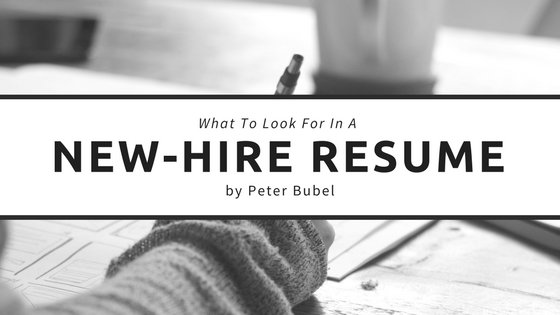
Peter Bubel+ by | Jul 3, 2019 | Uncategorized
Licensed real estate property management firms obtain significant benefits by seeking the optional CRMC® designation. This acronym stands for “Certified Residential Management Company.” (This designation, not to be confused with Certified Regulatory Compliance Manager in the financial services field, remains available to companies which adhere to National Association of Residential Property Managers best practices.) It indicates the firm has undergone an intensive six-step process to enhance and automate property management in a systematic way. Only the most elite sector of the realty property management marketplace obtains this coveted title.
Financial Benefits
The process of undergoing challenging peer review forces realty management firms to closely assess their business models. With the assistance of their mentor, managers seek to find ways to create more robust administrative processes. They also endeavor to automate services when feasible. This type of careful analysis yields significant rewards over the long term. Many property managers maintain their firms benefit enormously as a result.
Some areas which undergo review include human resources, customer relationship management, and information technology, including both hardware and software. This type of systems analysis offers enduring benefits. It addresses a common complaint within the property management industry: managers overwhelmingly express concern their employees may not always adhere to the most efficient standardized management processes.
A Comprehensive Peer Review Process
In order to become a CRMC® realty firm, a company must scrutinize and evaluate every aspect of its operations. A mentor assists in this comprehensive process. The business requires a Master Property Manager (MPM®) as a staff member in order to apply for the program. The realty property management firm must also establish that it has managed at least 500 residential units for a period of at least one year.
The Certification Committee then selects an auditor from the NARPM to conduct a comprehensive audit of the firm within three years of the application. Firms which gain this approval re-certify ever three years in order to keep the CRMC® designation current through renewal. Maintaining this high standard helps ensure a property management company remains on the cutting edge of the industry in terms of its use of technology!

Peter Bubel+ by | Dec 5, 2017 | Blog, Peter Bubel, Uncategorized
Reading over hundreds of resumes and selecting the best ones is not only a time-consuming task but is also a significant part of building a successful company. It may seem daunting, but there are ways to make this important, yet tedious task, a little less stressful.
When staring at an overwhelmingly large stack of resumes and cover letters, the first place to start is a simple scanning process. Take a quick look at each resume and cover letter for specific things that give a “green light” or “red light” for that particular candidate. Those that have green light material go in the “maybe” pile for further examination and those with red light material go in the “nope” pile.
When doing a quick resume scan, look for these signs:
- Relevant Keywords: If you only look for one thing while doing your scan process, let it be this. Think about keywords that are often used within your company or industry before beginning your overlook. Search for those words that best fit the job title with more importance placed on the most recent positions.
- Lack of Professionalism: A resume is a candidate’s first impression on a potential employer. If their resume is not carefully crafted, and (practically) flawless, it says a lot about who that employee will be over the long term. If they can’t take the time to create an honest, upbeat and professional resume, they most likely won’t take that time with their work either.
- Readability: From first glance, the resume should be inviting and attractive. Words should be clear and easy to read, and the organization of the information should allow for an easy read.
Once you have done a quick scan and narrowed that vast pile down, it is time to begin a more thorough examination of each candidate’s qualities and experience. While there are many factors that come into play for each individual, there are a few essential items that point to a great potential employee.
Succinct Content
It is vital for a candidate to be able to communicate their expertise without using too much industry terminology or jargon. The ability to convey their message while also simplifying it in a way that can be understood by those outside of the industry is a useful tool when working with clients and business partners; it can also be a great skill to have when training new employees or working on a team. The content should also contain no spelling or grammar mistakes. If the resume looks like it hasn’t been reread or edited, it would be easy to assume that their work would also go unchecked.
Longevity
When assessing each candidate’s experience, take a moment to look at the date span of each position. Shorter time-spans between jobs could suggest that the employee might not be interested in a long-term commitment to building a company. Longer time-spans may indicate that an individual is involved in advancing skills and sticking with a company as it grows.
Tailored Messaging
If there is a signal that an applicant should immediately be put in the interview process, it is tailored messaging. If the resume and cover letter seem to have had phrases copy and pasted in, it may imply that the applicant is sending out the same resume to multiple companies. Instead, look for resumes that seem to have been crafted specifically for the job title and description that was posted.
Resumes are a great way to get an idea of who is a good possible fit and who may not be. However, resumes can only share so much about a candidate. If you are unsure about a resume and cover letter, a quick phone interview could give you an idea of what to do next.

Peter Bubel+ by | Apr 8, 2017 | Blog, Peter Bubel, Uncategorized
Traveling is a beautiful thing, but if you’ve never ventured outside your neck of the woods, it can be a bit overwhelming, especially if you’re stepping foot onto a plane for the first time, too. There’s so much planning and preparation that goes into traveling that you might not even know where to begin! That’s why I’ve compiled this list of tips for first time travelers to help you navigate your trip with ease.
- Pack lightly.
- When you’ve never traveled before, it can feel like no matter how much you bring you still might have forgotten something. However, chances are that whatever you end up bringing, you’ve still probably brought too much. Bring only enough clothes for a few days with the understanding that, when they’re dirty, you’ll wash them and wear them again. You also don’t need more than a pair or two of shoes throughout your trip, which can save you some luggage space, too.
- Bring your camera.
- When you travel, you might be tempted to purchase tchotchkes and souvenirs to commemorate your trip. However, at the end of the day what’s really going to help you remember your vacation will be the pictures you take and the memories you’ve made. One of the best things you can bring with you when you travel is your camera, and extra batteries and memory cards won’t hurt either — you don’t want to have to decide what pictures to delete while trying to capture the perfect moment.
- Arrive at the airport early.
- If your vacation includes flying, you want to make certain that you leave yourself plenty of time before your flight to get there early, get checked in, and have a nice window before your flight departs. While it may be annoying sitting in the airport for an hour or two before you leave, it’s definitely far more annoying to miss your flight and have your plans ruined because you didn’t leave yourself enough time.
- Go off the map.
- When traveling to new places, especially in other countries, it can be comforting and easy to get stuck in the tourist traps and commercialized areas because they feel familiar. However, you decided to take a vacation and travel so you could experience new things and see foreign sights, so make sure you don’t forget to do that. Try eating somewhere off the grid that the locals enjoy. You’ll branch outside of your comfort zone, make memories, and might even find a new favorite dish!
Don’t forget to check out my upcoming post – First Time Traveling Mistakes to Avoid!

Peter Bubel+ by | Jan 31, 2017 | Uncategorized
When you’re looking to expand your small business, one of the first steps in the right direction is hiring new employees to help you handle the extra work as your company grows. Expanding your business in many ways can feel like expanding your family, so you want to make sure that you hire the best people for the job. While it’s optimistic to always want to believe the best in people, you need to take care of your business and, in order to do so, you need to find people who are the right fit. The importance of hiring good employees who will take pride in your business and help you grow your brand cannot be overstated; here are just a few reasons why hiring good workers can make all the difference in the world.
- You’re putting your reputation in their hands.
Whenever you hire a new employee to your business, you’re hiring someone to represent you and represent your business to the public. Therefore, it’s crucial to hire someone who is going to do so in a way that is cohesive with your company’s message and mission. This is why, when you’re first beginning to expand, it’s important to have a hand in the hiring process and selection of employees.
- Bad employees waste your valuable time.
When you’re beginning to expand, the first batch of employees that you hire will undoubtedly have to acquire more knowledge of how your business operates than any employees that you hire down the road. That’s why it’s particularly important to make sure that the hires you make are good ones. Hiring a bad employee could eat up months of your time in training that results in a bad egg either quitting or being fired, and that’s precious time you can’t get back. While it’s difficult to guarantee extended tenure from new employees, you always want to do your best to find people who are going to stick it out and help you shape the business.
- In addition to wasting your time, they’ll cost you money.
Not only will you lose the hours you spent training a poor employee, you’re also putting yourself in a situation where you could lose a lot of money. Sure, you lost the money you spent training them, but you’ll also have to pay the price for any mistake that employee made while under your employment. If they caused an accident due to negligence or recklessness, the burden of taking responsibility for that action falls on your shoulders.




